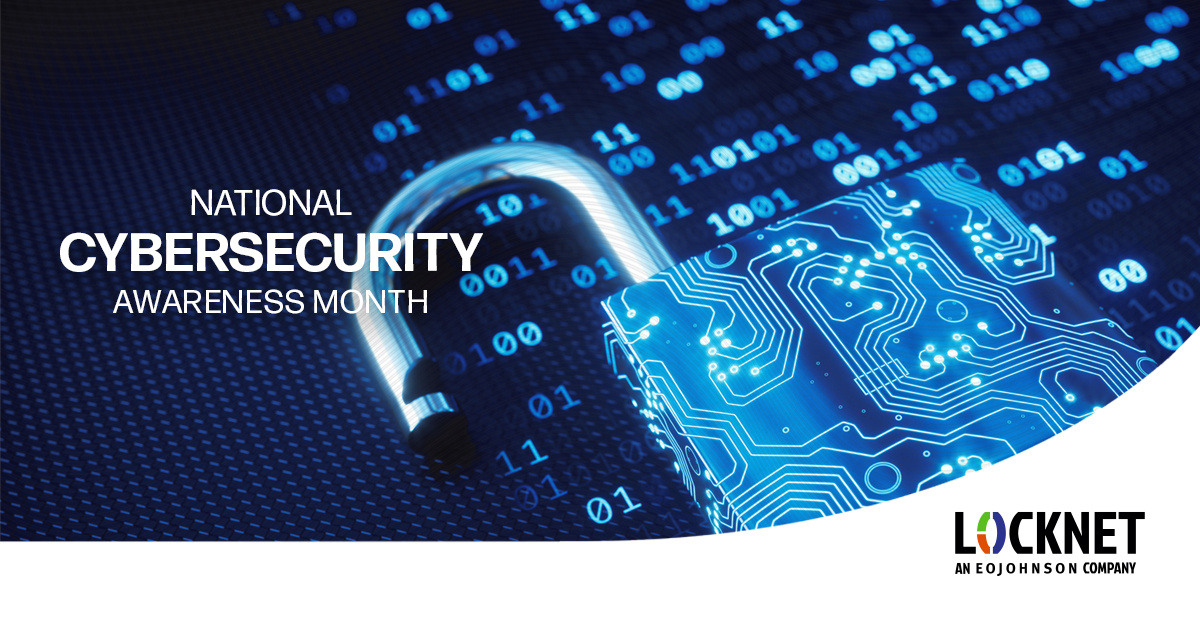Industries We Serve
World Class IT Support & Service
Real People. Right Now.
About Locknet® IT Services
From the first hello, the Locknet® team is dedicated to serving you and your needs.
Real People. Right Now.
From the first hello, the Locknet® team is dedicated to serving you and your needs.


Updated October 3, 2025
October is National Cybersecurity Awareness Month. It's a reminder that as technology gets better, so do the threats to our security. For businesses of all sizes, staying ahead of cyber threats is crucial. Our recommendations this year focus on building a culture of cybersecurity. As your Managed Security Service Provider (MSSP), we’re highlighting five crucial tips to help you and your employees stay safe.
Your employees are your first line of defense. That’s why this tip is at the top of the list. Regular training can help your employees recognize and avoid cyber threats like phishing. Make sure they also know how to report any suspicious activity.
Best Practice Tip: Implement frequent and mandatory cybersecurity training sessions to keep employees updated on the latest threats and security best practices. Include phishing simulations, so your team learns how to identify suspicious emails and communications. Additionally, foster a culture where employees feel comfortable reporting potential security incidents without fear of reprisal.
Passwords alone are not enough to protect your accounts and data. Multi-Factor Authentication adds an extra layer of security by requiring two or more forms of verification, like a password and a code sent to your phone. This makes it much harder for hackers to get in.
Best Practice Tip: Educate employees on the importance of using MFA not only for work accounts but also for personal accounts tied to financial or sensitive information. Deploy MFA solutions across critical systems and accounts.
Outdated software and unpatched systems are an easy target for hackers. Make sure to regularly update your software to close any security gaps. Harden your systems, set up automatic updates, and create a schedule to ensure everything is up-to-date.
Best Practice Tip: Set up automatic updates where possible and create a patch management schedule to ensure critical systems and applications are consistently updated. If you’re concerned about downtime or compatibility issues, work with an MSSP to create a phased approach to updates.
Devices like laptops and smartphones can be weak points in your network. Use tools to monitor and protect these endpoints. Make sure they are encrypted and have up-to-date antivirus software. A cybercriminal only needs to breach one insecure endpoint to gain access to an entire network.
Best Practice Tip: Utilize endpoint detection and response (EDR) tools to monitor, detect, and respond to threats in real-time. Ensure that employee devices are encrypted and equipped with up-to-date antivirus software. Conduct regular security assessments to identify any potential vulnerabilities in the endpoint ecosystem.
Even with the best security measures, breaches can happen. Having a plan in place can help you respond quickly and minimize damage. Work with experts to develop and test your plan regularly.
Best Practice Tip: Collaborate with your MSSP to develop, test, and update your incident response plan regularly. Conduct mock breach drills to ensure all team members understand their roles and responsibilities during a cybersecurity incident. This preparation will help your organization stay calm and act decisively during an actual attack.
National Cybersecurity Awareness Month is the perfect time to review and strengthen your organization's cybersecurity posture. By following these tips, your business will be better protected against cyber threats. Remember, cybersecurity is everyone’s responsibility.
If you need expert help, consider working with a Managed Security Service Provider to keep your business safe year-round. Locknet Managed IT is an MSSP with a team of cybersecurity experts. Contact us today to learn how we can help your organization build a resilient security strategy.
Cybersecurity

Onalaska, WI Waterloo, IA Wausau, WI Eau Claire, WI Burnsville, MN
You are now leaving locknetmanagedit.com. Please check the privacy policy of the site you are visiting.